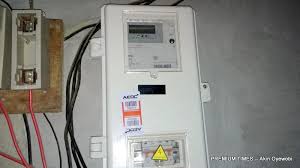…As Electricity Customers Flaw New Pricing Regime
Following the upward review of the meter supply rates by Meter Asset Providers (MAPs) to electricity distribution companies (DisCos), the companies have adjusted the unit prices of electricity meters based on the recent deregulation of the market.
Under the latest price regime scheduled to take effect from Tuesday, November 5, 2024, the cost of a single-phase meter has risen from approximately N117,000 to as much as N149,800, depending on the distribution company and meter vendor.
This upward revision followed an earlier increase in August 2024, further amplifying concerns among electricity consumers about affordability and accessibility.
The new prices posted on the official X handle of the Discos on Wednesday reflected the deregulation of meter asset providers as directed by the Nigerian Electricity Regulatory Commission (NERC) in April this year.
This upward revision follows an earlier increase in August 2024, further amplifying concerns among electricity consumers about affordability and accessibility.
An analysis of the documents showed that meter prices vary across Discos, influenced by vendors and meter models (single-phase and three-phase).
Eko DisCo pegged the price of its single-phase meter between N135,987.50 and N161,035, while a three-phase meter was pegged between N226,600 and N266,600 while Ibadan DisCo customers will pay between N130,998 and N142,548 for a single-phase meter and N226,556.25–NN232,008 for a three-phase-meter.
Abuja DisCo stated that its customers will pay N123,130.53 – NN147,812.5 for single-phase meters and N206,345.65 – NN236,500 for three-phase meters just as Kano DisCo informed its customers to pay between N127,925 – N129,999 for a single-phase meter and N223,793 – N235,425 for a three-phase meter.
Kaduna Disco stated that its single-phase meter will sell at between N131,150 – N142,548.94 and that customers will pay N220,375 – N232,008.04 for three-phase meters.
It would be recalled that the NERC had in April this year announced the deregulation of prices of meters, which allows meter providers to bid every two months in line with new regulations.
According to the commission’s latest order, meter prices under the MAP scheme will now be determined through competitive bidding rather than being centrally regulated in order to foster greater competition among meter providers, and ultimately improving cost efficiency and service delivery for end-users.
In addition, the deregulation removed previously subsisting operational restrictions, allowing MAP permit holders to provide metering services across the DisCos.
However, to enable the MAPs to enjoy the incentive, they must meet specific regulatory requirements to ensure compliance and maintain quality standards in service delivery.
Before then, the NERC-regulated meter prices were often subsidized across all DisCos to reduce costs for customers. While this model aimed to make metering affordable, it inadvertently stifled competition and limited transparency in the supply chain.
As a result, Discos and customers were unable to negotiate or explore better deals from meter vendors, contributing to inefficiencies in the system.
With deregulation now in place, NERC anticipates a more dynamic metering ecosystem where customers and Discos can benefit from competitive pricing, improved service quality, and greater accountability among meter providers.
Some of the meter vendors are Mojec Asset Management Company, Wellsun Intelligent Technology, Gosslink Engineering, Turbo Energy Ltd, MBH Power, CIG Metering Assets, among others.
As expected, some electricity consumers’ advocacy groups have flawed the latest prices of meters on the grounds that the hike would further accentuate the burdens of consumers, who had been facing challenges in paying the recently adjusted tariffs nationwide.
For instance, the Executive Director of the Electricity Consumers Protection and Advocacy Centre, Princewill Okorie, has rejected the new meter prices, saying there are no justifications for it as the federal Government recently gave them N59 billion from the N200 billion earmarked for the National Mass Metering Programme in 2020, out which they only paid N9 billion so far.
He rued: “They keep increasing the meter price, why are they wicked? N200 billion was earmarked for the NMMP that was to be implemented in three phases. Only the pilot phase of N59 billion was implemented. And what the 11 Discos could pay back was only N7 billion. What did they use the rest of the money for?
“Since after that N59 billion, what has happened to the rest of the money when you removed N59 billion from N200 billion? Are they not the same people who are paying for this meter that are paying for the shortfall as part of their electricity bills? The regulator increased the tariff, saying they wanted the Discos to get money to pay back the loan. Who are the people that got the meters?
“Let them stop taking Nigerians as fools. The meter acquisition fund, what did they use it for? So, it’s not justified at all. I don’t know why they want to keep inflicting punishment on Nigerian consumers. Let them account for the N200 billion for the national mass metering programme.
Okorie argued that “in other countries, how much is a meter? What is the price of a one-phase meter or three-phase compared to what they are asking Nigerians to pay?”, Okorie queried.






